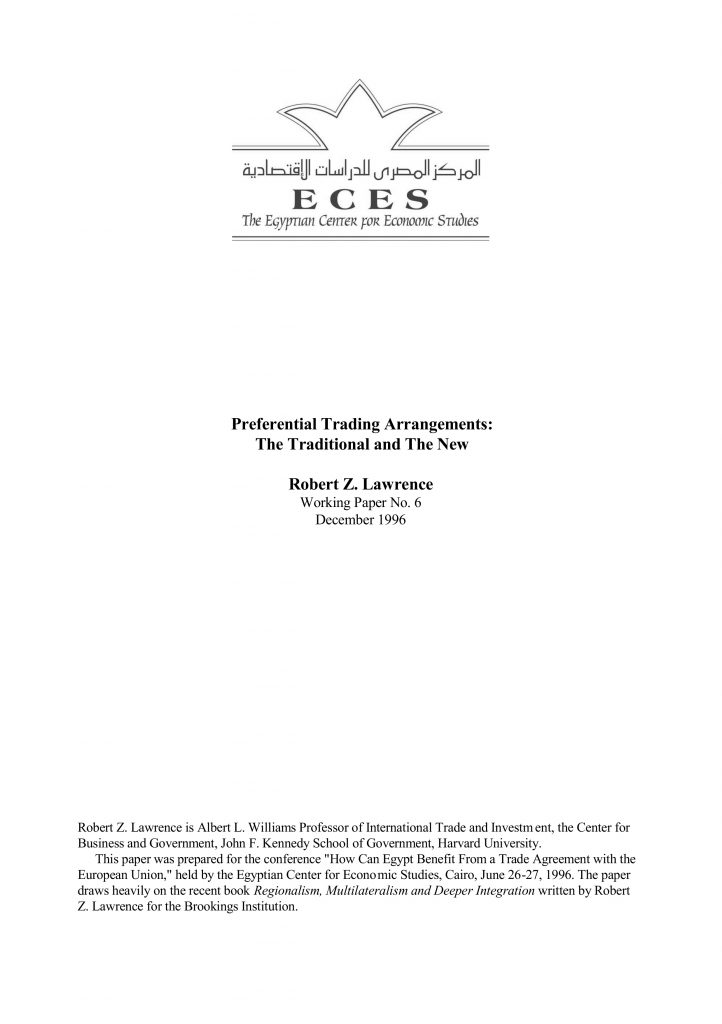Abstract:
This paper contrasts regional preferential economic agreements of the traditional sort with those that have emerged in recent years. In addition, it assesses the implications of the Euro-Med initiatives for the Middle East.
The paper argues that the new preferential trade agreements (PTAs) have the potential to generate greater economic growth impacts than traditional free trade agreements. Recent PTAs are characterized by a general process of increased openness to trade and investment, rather than import substitution, protection of markets, and managed trade. The new regionalism is pursued by countries seeking deeper integration with partner countries and increased participation in the world economy, thus inferring greater reliance on market forces, export to world markets, and foreign capital and services.
Nevertheless, the agreements being concluded between the EU and Mediterranean countries, while having the potential to become deep integration arrangements, are perhaps better characterized as more traditional trade agreements. As a result, until the agreement liberalizes services and investment, its welfare implications may be driven largely by classic trade diversion and trade creation tradeoffs.

